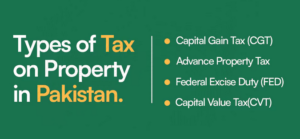House on installments Raiwind Road
House On Installments Raiwind Road We have a beautiful Spanish-style house for sale on Raiwind Road, Lahore. It’s available on

6 Best Tax Strategies for Property Investors in Pakistan
Optimize Holding Periods
Maximize tax efficiency by holding properties for over three years to benefit from reduced Capital Gains Tax (CGT) rates. This strategy can lead to significant long-term tax savings.
Invest in Development Projects
Investing in property development offers tax advantages, including reduced CGT rates and deductible expenses like labor and material costs during the construction phase.
Leverage Tax Deductions

Unlock Tax Incentives for Affordable Housing
Tap into government incentives for low-cost housing projects, offering reduced tax rates and exemptions, to benefit from substantial tax savings.
Navigate Withholding Tax
Understand applicable withholding tax rates and exemptions to avoid overpayment. Ensure accurate withholding and reporting to prevent discrepancies.
Maintain Accurate Records
Keep organized financial records to streamline tax compliance, maximize credits, and deductions. Utilize modern tools for effortless record-keeping.
By implementing these strategies, property investors in Pakistan can minimize tax liabilities, maximize returns, and achieve long-term financial success.
I have been warning against such a move by Govt to target unproductive assets such as plots and files etc since the second half of 2021. The real target is wealthy people as investors who only hold 25 M worth of properties as per FBR value, besides their homes are exempt from any taxes.
The present budget is clearly in accordance with the IMF and FATF plans to discourage investment in plots and files, which are considered as unproductive assets.
You now have three options if you want to make money in real estate.

House On Installments Raiwind Road We have a beautiful Spanish-style house for sale on Raiwind Road, Lahore. It’s available on
Benefits of Investing in Apartments vs. Houses When considering real estate investments, choosing between apartments and houses can be pivotal.
Why Investing in Pakistani Hotel Apartments is a Better Choice Than investing in Dubai When considering real estate investments, Dubai